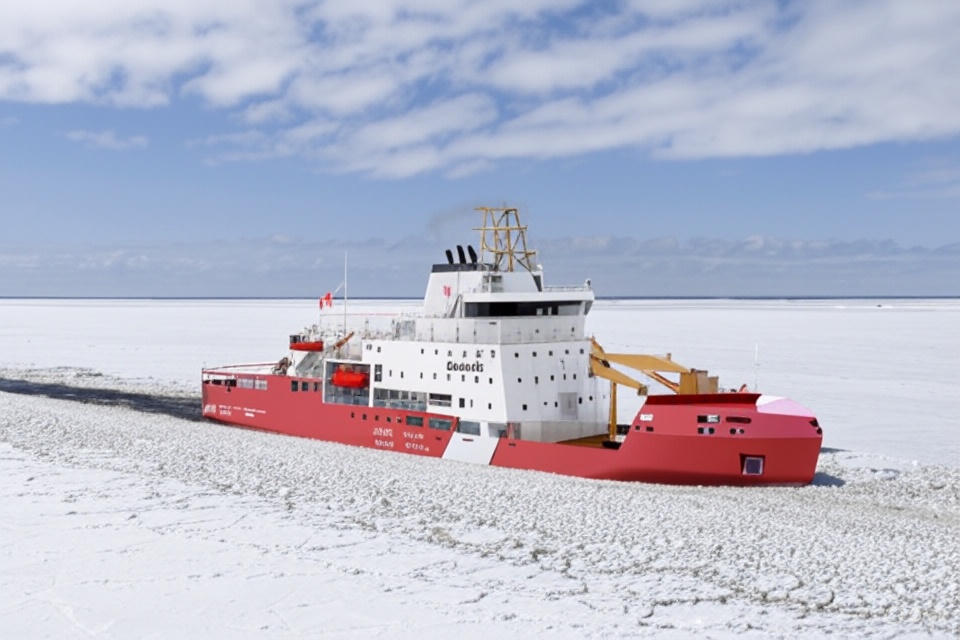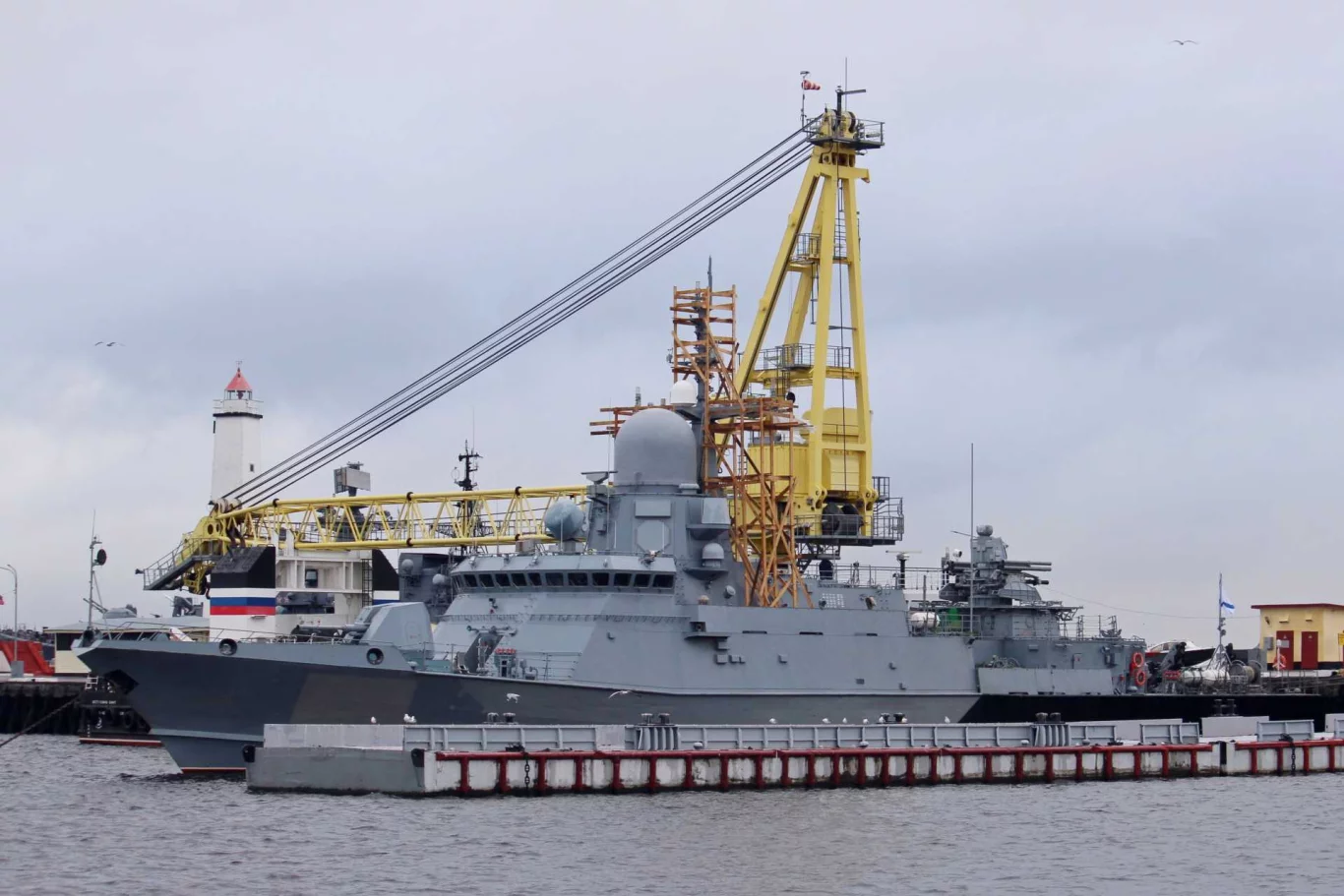On July 15, Seaspan Vancouver Shipyards announced a landmark memorandum of understanding (MOU) with Algoma Steel, based in Sault Ste Marie, Ontario, and Stigterstaal Canada, located in Brantford, Ontario. This strategic partnership aims to re-establish and fortify a domestic steel supply chain, significantly enhancing Canada’s shipbuilding capacity and supporting the nation’s maritime industry.
Strengthening Canada’s Maritime Industry
The MOU outlines a collaborative framework for Algoma Steel to supply both class and non-class steel to Seaspan through Stigterstaal Canada, which will serve as a commercial and logistical subcontractor. This initiative is a pivotal step toward ensuring a reliable, high-quality steel supply for Seaspan’s ambitious shipbuilding projects under Canada’s National Shipbuilding Strategy (NSS).
Seaspan, selected in 2011 as a key contractor for the NSS’s non-combat vessel package, is tasked with constructing several vessels for the Canadian Coast Guard (CCG), including up to 16 Multi-Purpose Icebreakers, as well as two Joint Support Ships (JSSs) for the Royal Canadian Navy (RCN). The partnership with Algoma Steel and Stigterstaal Canada underscores Seaspan’s commitment to leveraging domestic resources to meet these obligations while fostering economic growth and industrial resilience in Canada.
Seaspan’s Comprehensive Shipbuilding Capabilities
Seaspan Vancouver Shipyards, located in North Vancouver, British Columbia, serves as the company’s primary hub for new vessel construction. According to Kate Morton, Seaspan’s Vice-President of Supply Chain Management, the shipyard underwent a significant modernization program to align with the rigorous demands of the NSS. This overhaul has equipped the facility with state-of-the-art infrastructure, enabling it to handle large-scale, complex shipbuilding projects.
In addition to its North Vancouver facility, Seaspan operates two other key yards: Vancouver Drydock and Victoria Shipyards on Vancouver Island. These sites focus on repair and in-service maintenance, ensuring the longevity and operational readiness of vessels. Together, these facilities position Seaspan as a full life-cycle shipbuilder, capable of managing every phase of vessel development—from functional engineering and detailed design to procurement, supply chain management, nesting (optimizing cutting patterns to minimize material waste), steel cutting, manufacturing, and final construction.
A Strategic Domestic Supply Chain
The collaboration with Algoma Steel and Stigterstaal Canada is a strategic move to reduce reliance on foreign steel suppliers, thereby enhancing Canada’s industrial sovereignty and supply chain resilience. Algoma Steel, a leading Canadian steel producer, brings expertise in manufacturing high-quality steel tailored for demanding applications, such as shipbuilding. Stigterstaal Canada, as the logistical and commercial intermediary, ensures seamless coordination and delivery of steel to Seaspan’s shipyards.
This partnership not only supports Seaspan’s ongoing projects but also aligns with broader national objectives to bolster domestic manufacturing and job creation. By sourcing steel locally, Seaspan can reduce lead times, lower transportation costs, and mitigate risks associated with global supply chain disruptions. Moreover, the MOU fosters innovation and collaboration among the three companies, potentially leading to advancements in steel production techniques and shipbuilding processes.
Supporting Canada’s National Shipbuilding Strategy
The NSS, launched to revitalize Canada’s shipbuilding industry, emphasizes the importance of domestic partnerships to deliver high-quality vessels for the CCG and RCN. Seaspan’s role in this strategy is critical, as it is responsible for constructing vessels that will enhance Canada’s maritime security, environmental protection, and Arctic sovereignty. The Multi-Purpose Icebreakers, for instance, are designed to operate in Canada’s challenging northern waters, supporting critical missions such as search and rescue, environmental response, and scientific research.
The two JSSs for the RCN will provide essential at-sea replenishment capabilities, ensuring the navy’s operational readiness in both domestic and international waters. By securing a reliable domestic steel supply, Seaspan is better positioned to meet the NSS’s timelines and quality standards, delivering vessels that meet the unique needs of Canada’s maritime forces.
Economic and Industrial Benefits
The MOU is expected to yield significant economic benefits for Canada. By prioritizing domestic steel suppliers, Seaspan is contributing to job creation and economic growth in Ontario and British Columbia. Algoma Steel’s operations in Sault Ste Marie and Stigterstaal Canada’s presence in Brantford will see increased activity, supporting local communities and strengthening regional economies.
Furthermore, this partnership sets a precedent for future collaborations within Canada’s industrial sector. By demonstrating the viability of a domestic steel supply chain for shipbuilding, Seaspan, Algoma Steel, and Stigterstaal Canada are paving the way for other industries to adopt similar models, enhancing Canada’s overall manufacturing capabilities.
Looking Ahead
The MOU marks a significant milestone in Seaspan’s efforts to build a robust and sustainable shipbuilding ecosystem in Canada. As the company continues to assess the feasibility of this partnership, it will work closely with Algoma Steel and Stigterstaal Canada to refine processes, optimize supply chain logistics, and ensure the consistent delivery of high-quality steel.
This strategic alliance not only strengthens Seaspan’s capacity to deliver on its NSS commitments but also reinforces Canada’s position as a leader in maritime innovation and industrial self-reliance. With a modernized shipyard, a comprehensive suite of shipbuilding capabilities, and now a fortified domestic supply chain, Seaspan is well-equipped to drive the future of Canadian shipbuilding.




